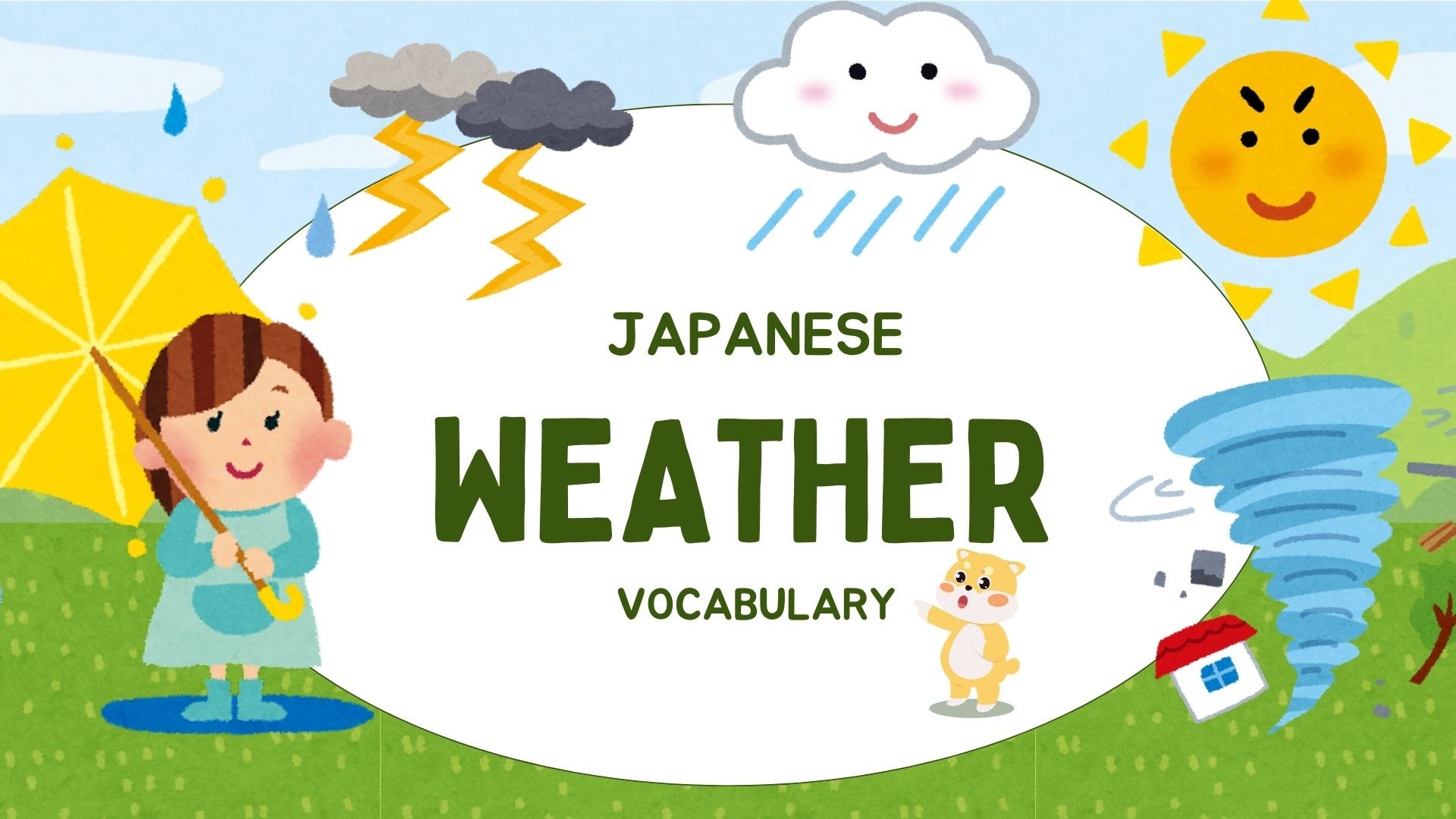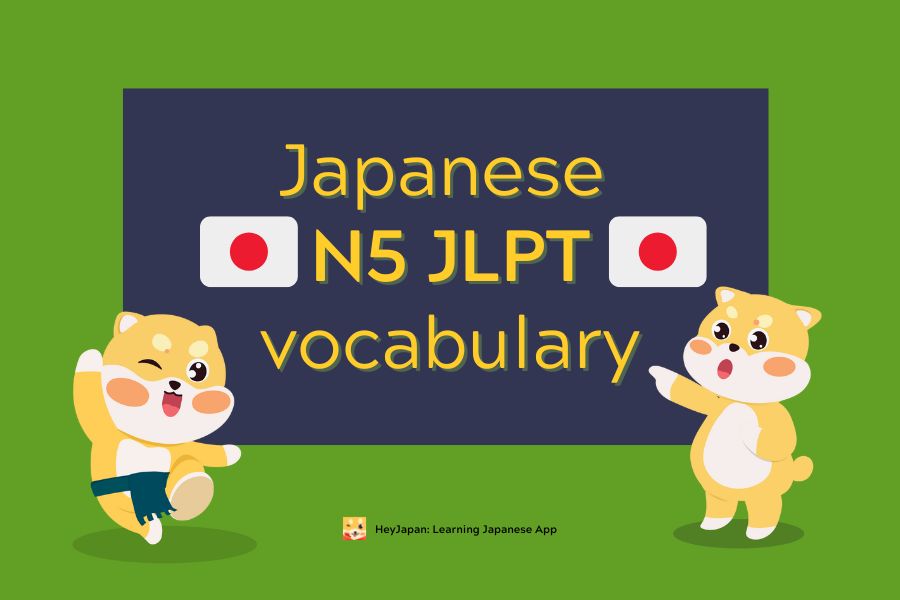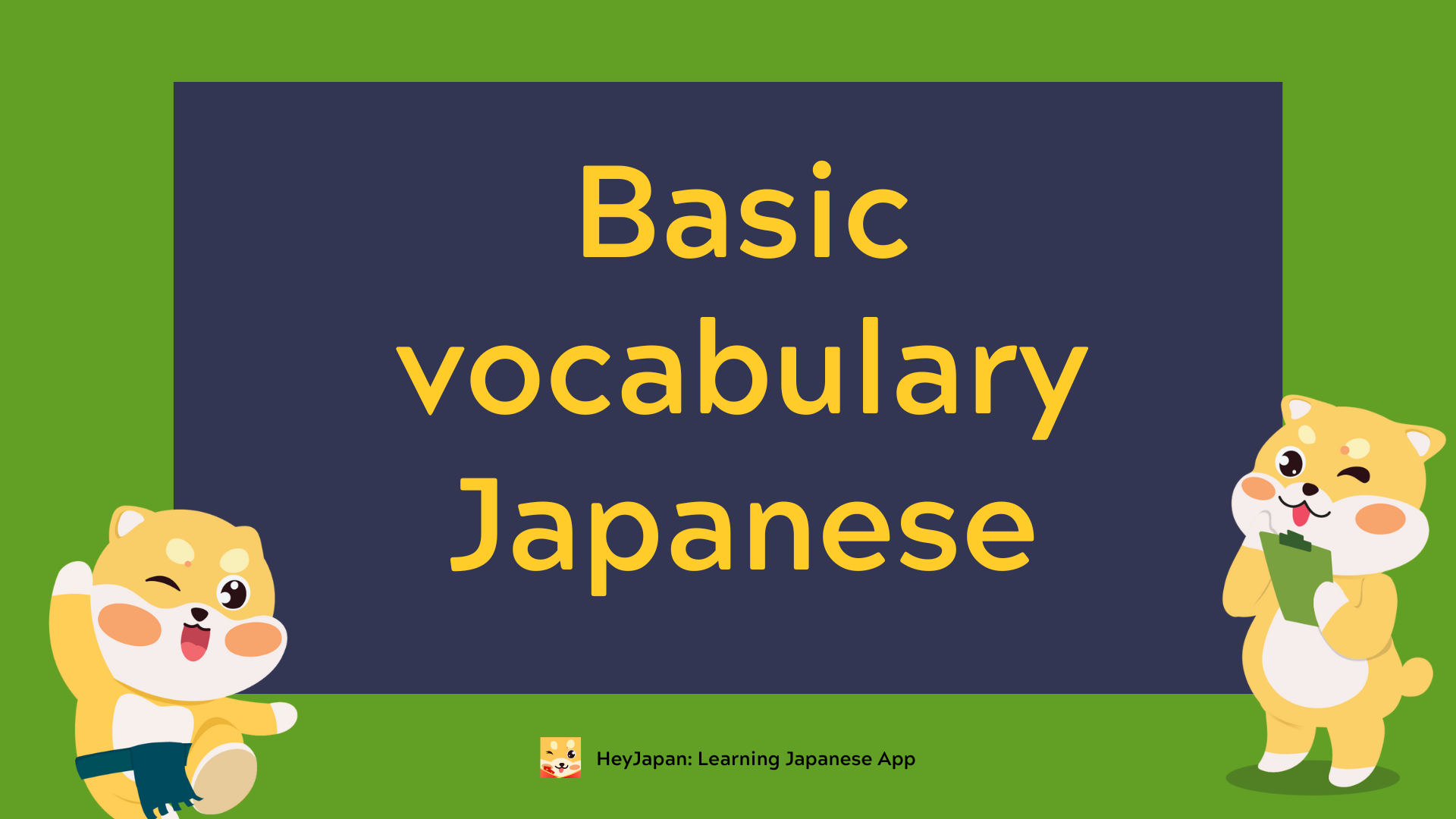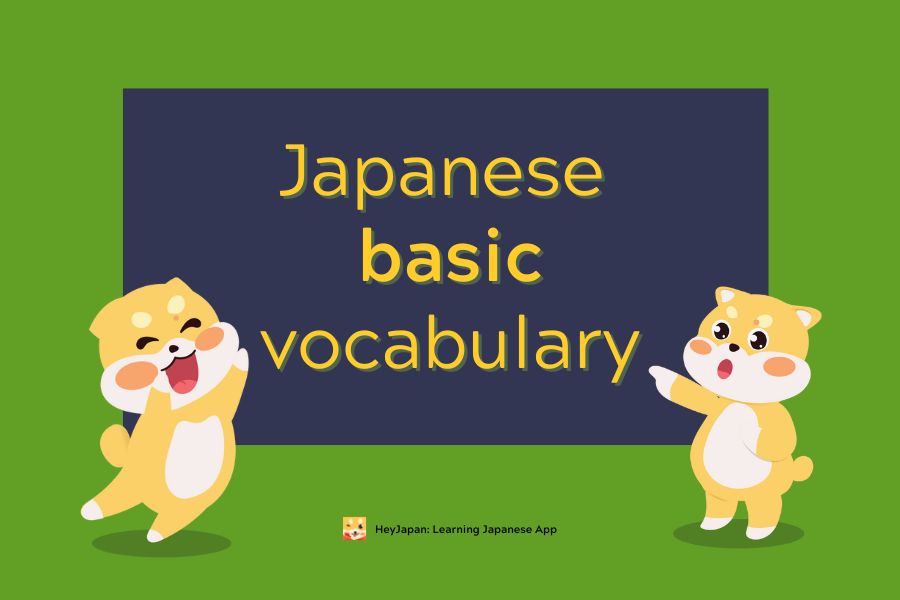- Weather Vocabulary
- Season
- Disaster
- Rain-related vocabulary
- Snow-related vocabulary
- Common phrases to use
When talking about the weather in Japan, it's not just about simple vocabulary—there are unique expressions used to describe specific weather conditions commonly found in the country. Let’s dive into these Japanese weather terms and practice some useful phrases with HeyJapan!
Weather Vocabulary
Here’s a list of basic weather-related terms that will come in handy in most conversations:
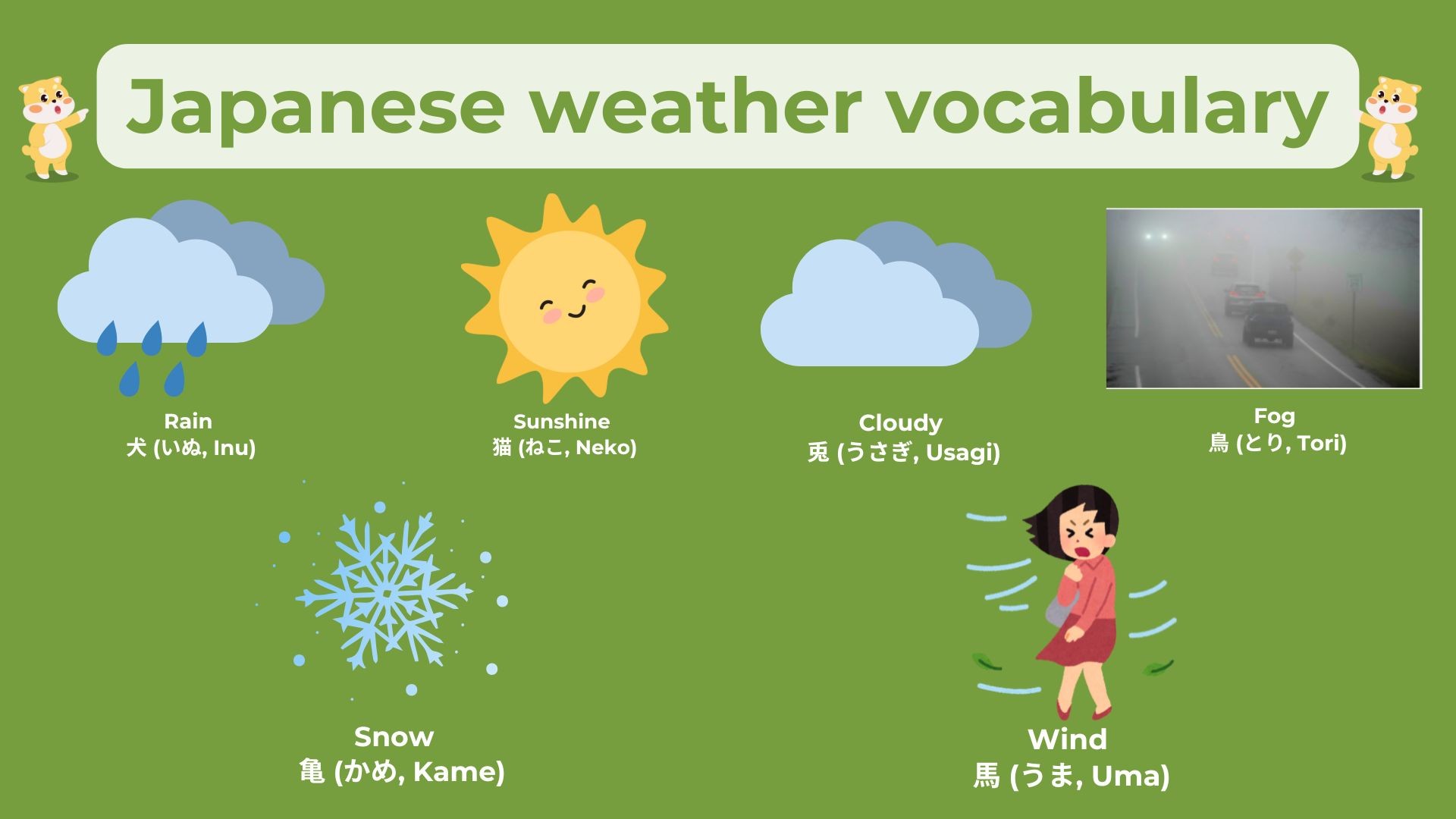
- Weather – 天気 (てんき, Tenki)
- Weather forecast - 天気予報 (てんきよほう, Tenki yohou)
- Clear skies – 晴れ (はれ, Hare)
- Cloudy – 曇り (くもり, Kumori)
- Rain – 雨 (あめ, Ame)
- Sunshine – 日差し (ひざし, Hizashi)
- Wind – 風 (かぜ, Kaze)
- Thunderstorm – 雷雨 (らいう, Raiu)
- Fog – 霧 (きり, Kiri)
- Hot – 暑い (あつい, Atsui)
- Cold – 寒い (さむい, Samui)
- Humidity – 湿度 (しつど, Shitsudo)
- Temperature – 温度 (おんど, Ondo)
Example Sentences:
- 今日は晴れです。 (Kyo wa hare desu.)
→ The weather is clear today.
- 風が強いですね。 (Kaze ga tsuyoi desu ne.)
→ The wind is strong, isn’t it?
Season
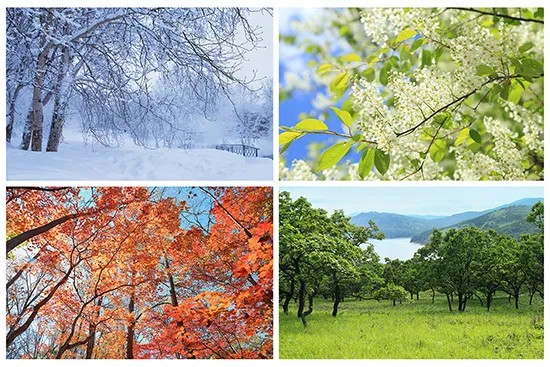
In Japan, each of the four seasons has its own set of distinct weather characteristics. Here are the season-related terms that describe each part of the year:
- Spring – 春 (はる, Haru)
- Summer – 夏 (なつ, Natsu)
- Autumn/Fall – 秋 (あき, Aki)
- Winter – 冬 (ふゆ, Fuyu)
- Season – 季節 (きせつ, Kisetsu)
- Spring shower – 春雨 (はるさめ, Harusame)
- Summer heat – 夏の暑さ (なつのあつさ, Natsu no atsusa)
- Autumn leaves – 紅葉 (こうよう, Koyo)
- Winter chill – 冬の寒さ (ふゆのさむさ, Fuyu no samusa)
Example Sentences:
- 春は暖かいですね。 (Haru wa atatakai desu ne.)
→ Spring is warm, isn’t it?
- 秋は紅葉が美しいです。 (Aki wa kōyō ga utsukushī desu.)
→ Autumn leaves are beautiful.
Disaster
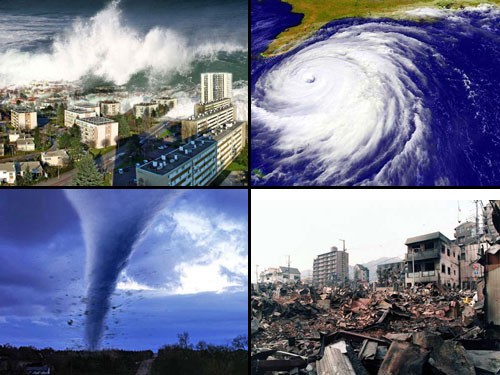
In Japan, natural disasters such as earthquakes, tsunamis, and volcanic eruptions are common topics of conversation due to the country’s geographical location. Here are some essential disaster-related terms:
- 地震 (じしん, Jishin) – Earthquake
- 津波 (つなみ, Tsunami) – Tsunami
- 火山 (かざん, Kazan) – Volcano
- 噴火 (ふんか, Funka) – Eruption
- 洪水 (こうずい, Kōzui) – Flood
- 土砂崩れ (どしゃくずれ, Dosha kuzure) – Landslide
- 台風 (たいふう, Taifū) – Typhoon
- 雷 (かみなり, Kaminari) – Thunder
- 竜巻 (たつまき, Tatsumaki) – Tornado
- 大雪 (おおゆき, Ōyuki) – Heavy snow
- 大雨 (おおあめ, Ōame) – Heavy rain (downpour)
- 避難 (ひなん, Hinan) – Evacuation
- 避難所 (ひなんじょ, Hinanjo) – Evacuation shelter
- 警報 (けいほう, Keiho) – Warning
- 津波警報 (つなみけいほう, Tsunami keiho) – Tsunami warning
- 災害 (さいがい, Saigai) – Disaster
Example Sentences:
- 大きな地震がありました。 (Ōkina jishin ga arimashita.)
→ There was a big earthquake.
- 津波警報が発令されました。 (Tsunami keiho ga hatsurei saremashita.)
→ A tsunami warning has been issued.
- 火山が噴火しています。 (Kazan ga funka shiteimasu.)
→ The volcano is erupting.
Rain-related vocabulary
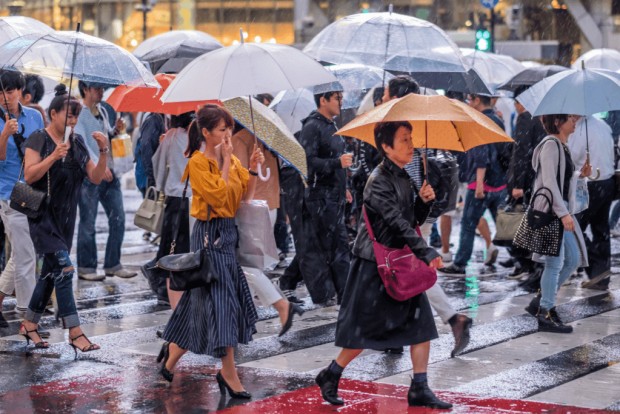
Here’s a list of essential Japanese vocabulary related to rain, including different types of rain and related expressions:
- 雨 (あめ, Ame) – Rain
- 雨が降る (あめがふる, Ame ga furu) – To rain
- 大雨 (おおあめ, Ōame) – A downpour
- パラパラ (Para para) – A light shower or sprinkle
- 雨天 (うてん, Uten) – A rainy day
- 曇り (くもり, Kumori) – A cloudy day
- 雨滴 (あまてき, Ameteki) – Raindrop
- 台風 (たいふう, Taifū) – Typhoon
- 霧雨 (きりさめ, Kirisame) – Drizzle
- にわか雨 (にわかあめ, Niwaka ame) – Sudden rain, shower
- 土砂降り (どしゃぶり, Doshaburi) – Torrential rain, downpour
- 雨期 (うき, Uki) – Rainy season (specifically the monsoon season)
Example Sentences:
- 今日は大雨です。 (Kyo wa ōame desu.)
→ It’s a downpour today.
- パラパラと雨が降っています。 (Para para to ame ga futteimasu.)
→ A light drizzle is falling.
- 台風が近づいています。 (Taifū ga chikadzuiteimasu.)
→ The typhoon is approaching.
Snow-related vocabulary

Winter in Japan brings snow, and there are several terms used to describe different types of snow and snow-related weather phenomena. Here are some important snow-related words:
- Snow – 雪 (ゆき, Yuki)
- It snows – 雪が降る (ゆきがふる, Yuki ga furu)
- Snowflake – 雪片 (せっぱん, Seppen)
- Ice – 氷 (こおり, Koori)
- Icicle – 氷柱 (つらら, Tsurara)
- Blizzard – 吹雪 (ふぶき, Fubuki)
- Big snow – 大雪 (おおゆき, Ooyuki)
- Snow flurry – 風花 (かざはな, Kazahana)
Example Sentences:
- 今日は雪が降っています。 (Kyō wa yuki ga futteimasu.)
→ It is snowing today.
- 大雪になりそうです。 (Ōyuki ni narisō desu.)
→ It looks like there will be heavy snow.
Common phrases to use
Knowing useful phrases to talk about the weather will help you in everyday conversations. Here are some examples of common weather phrases in Japanese:
- What’s the weather like today? – 今日は天気はどうですか? (きょうは てんきは どうですか?, Kyō wa tenki wa dō desu ka?)
- It’s hot today. – 今日は暑いです。 (きょうは あついです, Kyō wa atsui desu)
- It’s cold today. – 今日は寒いです。 (きょうは さむいです, Kyō wa samui desu)
- It looks like it will rain. – 雨が降りそうです。 (あめがふりそうです, Ame ga furi sō desu)
- It’s snowing outside. – 外は雪が降っています。 (そとは ゆきがふっています, Soto wa yuki ga futteimasu)
- How’s the weather this weekend? – 今週末の天気はどうですか? (こんしゅうまつの てんきはどうですか?, Konshūmatsu no tenki wa dō desu ka?)
- Today is colder than yesterday. 今日は昨日より寒いです。(Kyou wa kinou yori samui desu.)
Learn more:

